Gardeners are being warned to double-check what they put in their garden waste bins as councils across the UK have been cracking down on contamination in garden waste collections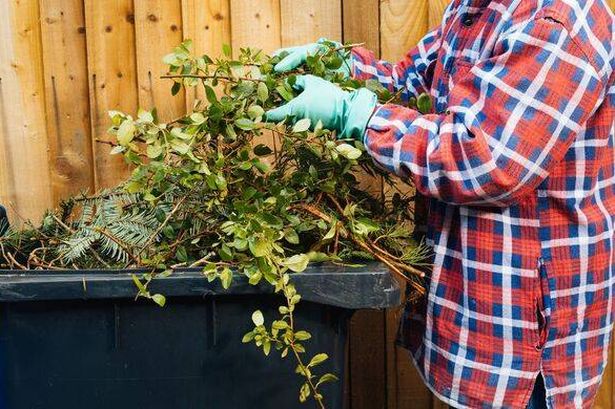 Gardners are reminded to double-check their garden waste [stock image](Image: Getty)
Gardners are reminded to double-check their garden waste [stock image](Image: Getty)
Even the largest compost bins are overflowing as Storm Benjamin batters trees bare of their leaves.
As gardeners tackle waterlogged foliage, trim withering flowers and cut back perennials, they’re being cautioned to carefully check what goes into their garden waste bins.
“November is one of the busiest months for garden waste as people get their gardens ready for winter,” says Ali Lijee, waste management expert at Rubbish.com.
“But a lot of homeowners don’t realise that not everything natural belongs in the green bin. Councils have very specific rules to protect the environment and the people handling your waste — and ignoring them can be costly.”
Ali warns that even minor errors, such as mixing in soil, kitchen scraps or certain invasive plants, can transform an entire bin lorry’s load into landfill waste. “That means your efforts to recycle actually do the opposite — wasting resources and increasing costs for everyone,” he cautions.
Local authorities across the UK have been tightening enforcement on garden waste contamination, with householders facing fines ranging from £100 to £5,000 for incorrect disposal.
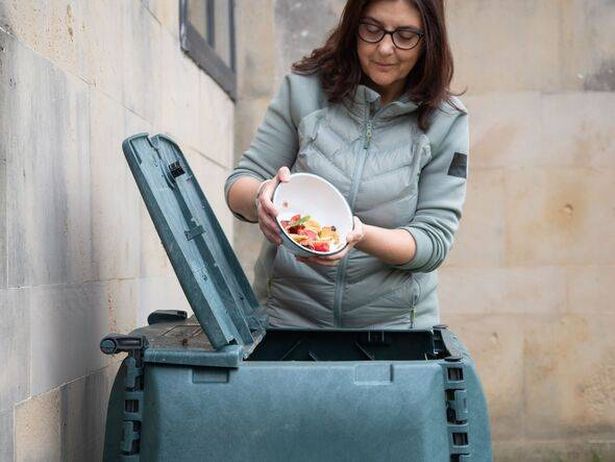 People often assume that food waste can go in the green bin [stock image](Image: Getty)Soil.
People often assume that food waste can go in the green bin [stock image](Image: Getty)Soil.
With the autumn tidy-up in full swing, it’s tempting to gather fallen soil from planters or dig-outs and dump it straight into the garden waste bin. But Ali says that’s one of the biggest mistakes you can make.
“Soil might seem harmless, but it doesn’t decompose in the same way as leaves, clippings or dead flowers,” he explains.
“When people dump it into their garden waste bin, it makes the bin much heavier and can damage collection vehicles and equipment.”
Many local councils outright ban soil because it can block composting systems and push bins over weight limits. Ali suggests reusing or recycling it responsibly instead.
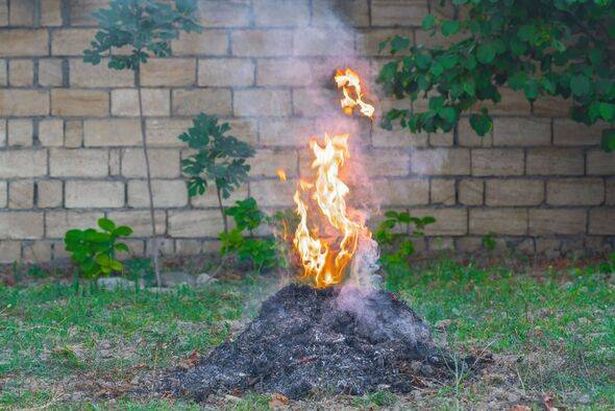 There are rules governing how you burn garden waste, too [stock image](Image: Getty)
There are rules governing how you burn garden waste, too [stock image](Image: Getty)
“Small amounts of soil can be added to a home compost heap or reused for potting plants. For larger quantities, the best option is to take it to your local household waste recycling centre, where it can be properly processed.”
If your garden beds have become waterlogged from November rain, Ali advises letting soil dry before moving it. “Wet soil weighs more than you think. A full bin could end up being too heavy to lift, which might mean your collection crew refuses to empty it.”
Food waste.
As compost heaps slow down in the chillier weather, many people mistakenly think the garden waste bin is suitable for kitchen scraps.
However, Ali warns that adding leftover pumpkins, apple cores or peelings to your garden bin could lead to contamination and even attract rats.
“People often assume that because it’s organic, food waste can go in the green bin. Unfortunately, that’s not the case,” he says.
“Food breaks down differently to garden material. It can create unpleasant odours, attract vermin and interfere with the composting process at the recycling facility.”
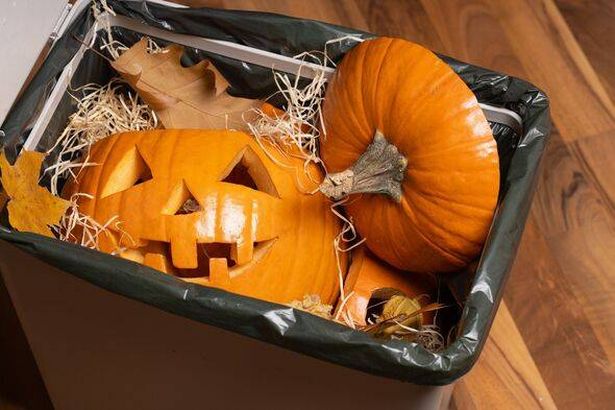 Adding leftover pumpkins to your garden bin could lead to contamination an(Image: Getty)
Adding leftover pumpkins to your garden bin could lead to contamination an(Image: Getty)
Local councils take this seriously, with fines of up to £100 for repeat offenders. “If your council provides a food waste caddy, use that instead,” Ali advises.
“Otherwise, you can compost fruit and veg scraps in your garden — but avoid adding cooked food, meat or dairy.”
He adds that some autumn leftovers can actually be put to good use: “Don’t bin your old pumpkins. Remove the seeds, let them dry and replant them next spring. It’s an easy, cost-free way to grow your own.”
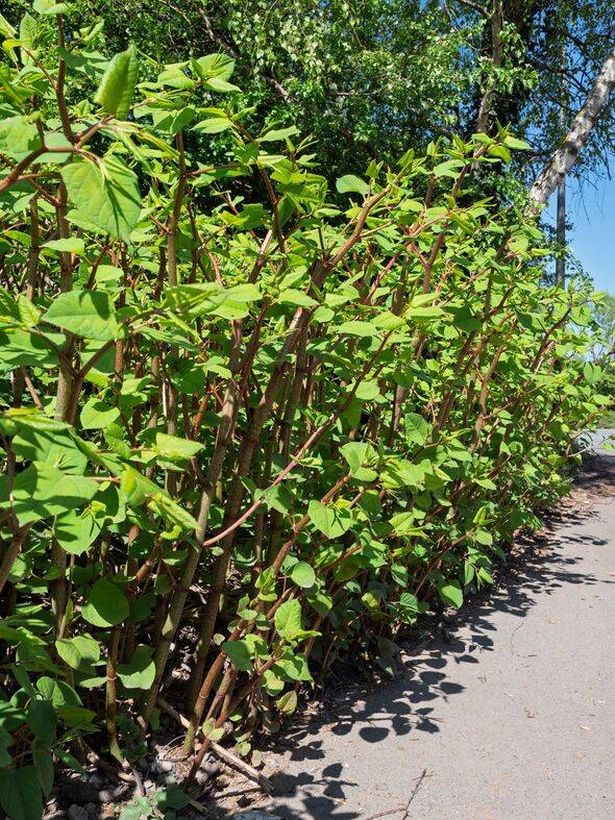 Japanese Knotweed is a knotty problem for gardeners [stock image](Image: Getty)Invasive plants.
Japanese Knotweed is a knotty problem for gardeners [stock image](Image: Getty)Invasive plants.
Perhaps the most serious mistake gardeners can make is disposing of invasive plant species in their garden waste bin. Plants such as Japanese knotweed, Himalayan balsam and giant hogweed are not only unwelcome — they’re illegal to dump.
“These plants are classed as controlled waste under UK law,” warns Ali.
“If they end up in composting facilities, they can spread rapidly and cause significant environmental damage.”
The penalties are steep: individuals can be fined up to £5,000, while businesses could face £20,000 or even prosecution. “If you suspect you’ve got an invasive species, it’s vital to check before disposing of it,” he explains.
“The correct method often involves contacting a licensed waste carrier or following strict containment procedures outlined on your local council’s website.”
Ali says knotweed is particularly troublesome in late autumn, when gardeners trim back dead stems or excavate roots.
“Even a tiny fragment of knotweed rhizome can regrow. It’s one of the most aggressive plants in Britain. Putting it in your garden bin is like giving it a free ride to someone else’s garden.”
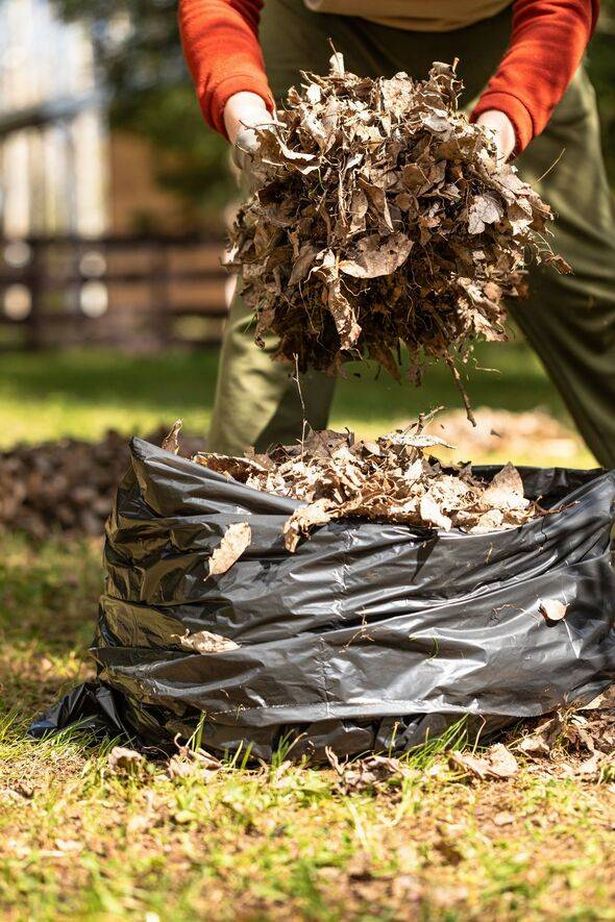 Compost bins only have so much room for fallen leaves [stock image](Image: Getty)The £5,000 reminder.
Compost bins only have so much room for fallen leaves [stock image](Image: Getty)The £5,000 reminder.
Ali emphasises that these regulations aren’t designed to make homeowners’ lives harder, but to prevent serious environmental and safety issues. “Garden waste is meant to be a clean, compostable stream,” he says.
“When people add the wrong things, it not only increases costs for councils, but can cause contamination that makes the entire batch unusable.”
To stay on the right side of the rules this winter, Ali recommends always checking your local council’s website before filling your bin.
“Each area has slightly different rules,” he explains.
“Some will accept small twigs, others won’t take conifer cuttings. Knowing what’s allowed helps avoid surprise fines and keeps the process sustainable.”
He also recommends using the colder months to start home composting. “Even in winter, compost heaps can continue working slowly,” says Ali.
“Add dry materials like leaves and shredded cardboard to balance out the moisture. It’s cheaper, greener, and keeps your garden bin clear for what it’s meant for.”

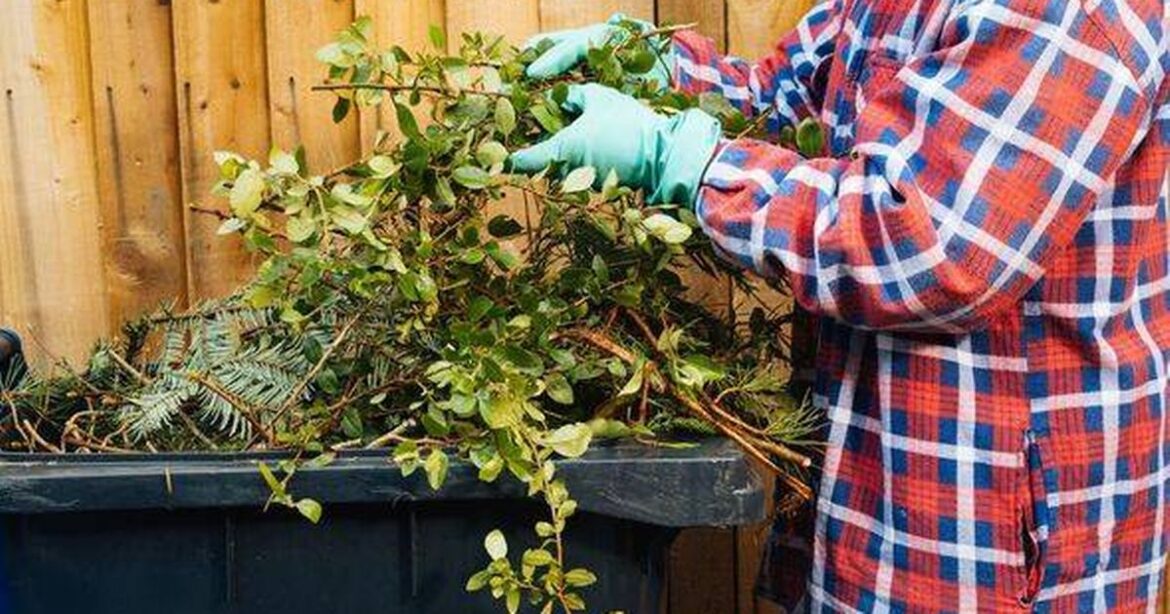
Comments are closed.